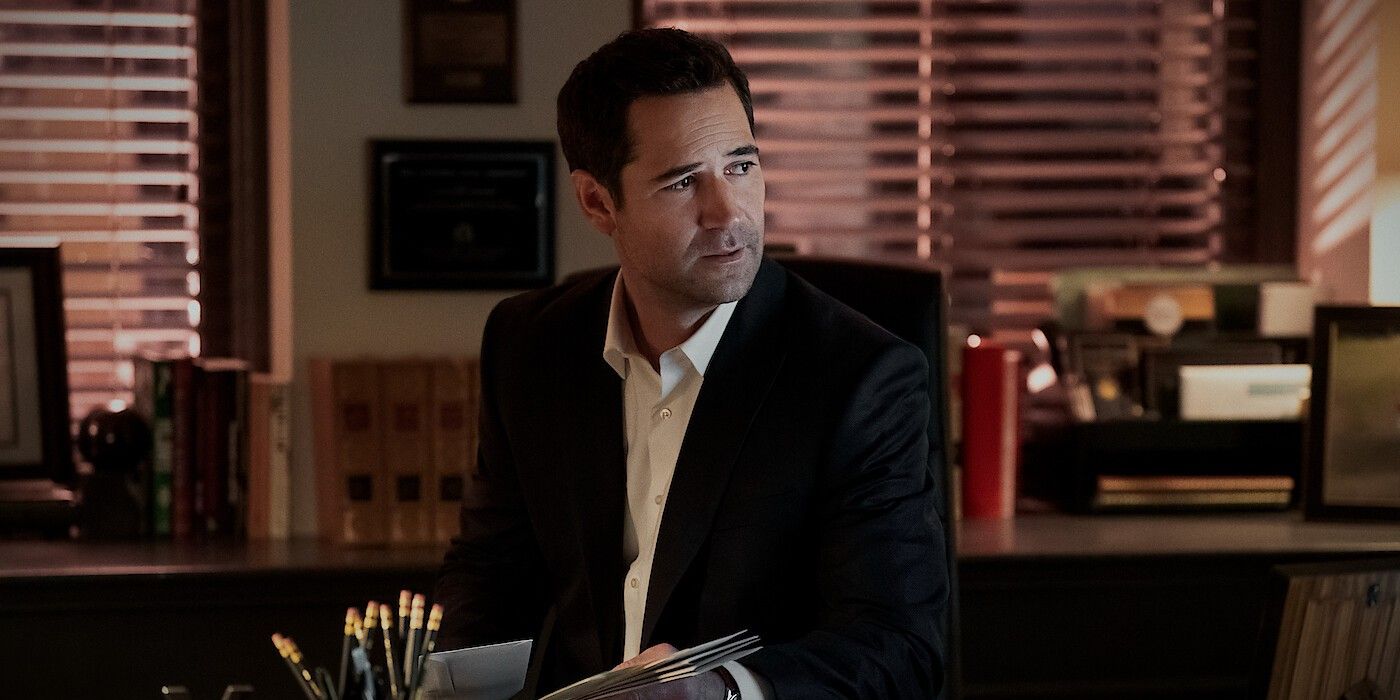Summary
- Successful legal dramas like The Lincoln Lawyer require moral ambiguity, says showrunner Ted Humphrey, with lawyers grappling with difficult choices and compromises.
- Authenticity is important, but dramatic storytelling often requires liberties to be taken. Trials take time and involve more than just courtroom proceedings.
- Lawyers are people with day-to-day lives consumed by mundane tasks. For Mickey, the criminal defense lawyer, finding income is a constant search.
The Lincoln Lawyer and The Good Wife writer-producer Ted Humphrey talks about what makes a compelling legal drama. The Lincoln Lawyer season 2 recently concluded on Netflix, wrapping up a 10-episode arc that continued to build the adaptation of Michael Connelly's books. And though The Good Wife ended in 2016, the CBS series has since grown into something of a franchise that includes The Good Fight and a second spinoff starring breakout guest star Carrie Preston as Elsbeth Tascioni.
In an interview with The New York Times, Humphrey talked about the secret to successful legal dramas like The Lincoln Lawyer. Humphrey, a writer-producer on The Good Wife, in addition to his role as showrunner of The Lincoln Lawyer, pointed to the importance of moral ambiguity. He also mentioned two other key factors, including authenticity and a focus on the day-to-day aspects of a lawyer's job. Read Humphrey's full quote below:
One, there has to be a gray area where this lawyer is wrestling with moral choices. Robert King, who created “The Good Wife” with Michelle King, used to say that the show was about the education of Alicia Florrick [played by Julianna Margulies]. She got back to work later in life, so you were watching her grow up and realize all the different moral compromises she would have to make.
Two is authenticity: You have to take some liberties because your first job is to tell a dramatic, interesting story. But trials take a year to happen, and things are really fought out as much in motions, witness prep and depositions as they are in the court case.
The third thing is that lawyers are people who have jobs, and their day is consumed with the minor nonsense of day-to-day life. For Mickey, the life of the criminal defense lawyer is one long search for income.
The Good Wife Had One Thing That Lincoln Lawyer Doesn't — Yet
The Good Wife was classic network television in the best way. Airing around 22 episodes per season, The Good Wife had plenty of time for self-contained episodes that focused on one case, while advancing the inner-personal conflicts the characters faced. This approach also allowed The Good Wife to build up its roster of recurring guests and end up with popular minor characters such as judges, defense attorneys, and prosecutors.
The Lincoln Lawyer, by contrast, has only 10 episodes per season so far. Those episodes usually focus on unraveling a single significant case, bit by bit, which leaves little room for digression. It's an approach that has seemed to work for the adaptation, as The Lincoln Lawyer season 3 already has its big case established. If the show is renewed by Netflix, the one-case-per-season formula looks like it will largely hold.
But if The Lincoln Lawyer continues to be a big hit for Netflix, it would be interesting if the show was granted longer episodes. With 20 episodes, for instance, the series could spend the first 10 on isolated cases while building the larger arc in the background. Although streaming tends to favor shorter episode counts, the recent success of Suits and the continued success of The Good Wife reveals an appetite for more time spent with legal dramas.
Source: The New York Times






